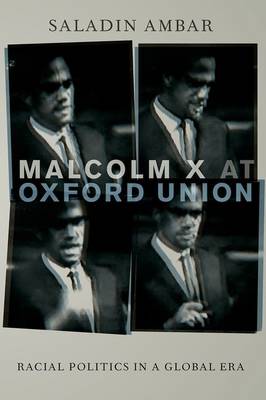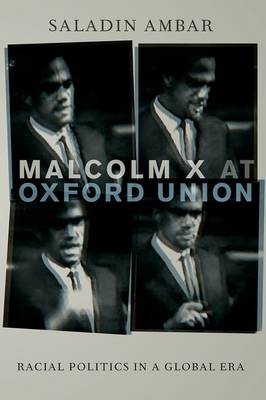
- Afhalen na 1 uur in een winkel met voorraad
- Gratis thuislevering in België vanaf € 30
- Ruim aanbod met 7 miljoen producten
- Afhalen na 1 uur in een winkel met voorraad
- Gratis thuislevering in België vanaf € 30
- Ruim aanbod met 7 miljoen producten
Zoeken
€ 54,95
+ 109 punten
Uitvoering
Omschrijving
In 1964, Malcolm X was invited to debate at the Oxford Union Society at Oxford University. The topic of debate that evening was the infamous phrase from Barry Goldwater's 1964 Republican Convention speech: "Extremism in the defense of liberty is no vice; moderation in the pursuit of justice is no virtue." His response to this topic stands out as one of the great addresses of the civil rights era. In Malcolm X at Oxford Union, Saladin Ambar offers the first in-depth analysis of this important speech, illuminating its context and consequences. Delivered just months before Malcolm's assassination, the speech followed a period in which Malcolm had traveled throughout Africa and much of the Muslim world, advocating on behalf of blacks in America and other nations. The journey broadened his political thought to encompass decolonization and the revolutions underway in the developing world. His travels culminated in a revolutionary speech that tackled a staggering array of issues: the nature of national identity; US foreign policy in the developing world; racial politics at home; the experiences of black immigrants in England; and the nature of power in the contemporary world. The speech represented the most advanced stage of his thought, proffering a global and humanist approach to ushering in social change. Malcolm X at Oxford Union reshapes our understanding not only of the man himself, but world politics both then and now.
Specificaties
Betrokkenen
- Auteur(s):
- Uitgeverij:
Inhoud
- Aantal bladzijden:
- 240
- Taal:
- Engels
- Reeks:
Eigenschappen
- Productcode (EAN):
- 9780190640835
- Verschijningsdatum:
- 1/10/2016
- Uitvoering:
- Paperback
- Formaat:
- Trade paperback (VS)
- Afmetingen:
- 137 mm x 211 mm
- Gewicht:
- 294 g

Alleen bij Standaard Boekhandel
+ 109 punten op je klantenkaart van Standaard Boekhandel
Beoordelingen
We publiceren alleen reviews die voldoen aan de voorwaarden voor reviews. Bekijk onze voorwaarden voor reviews.











